Homeopathy
Homeopathy, an alternative type of medicine that is more than two centuries old, has it that “similia similibus curantur,” serves as a stimulant to healing.
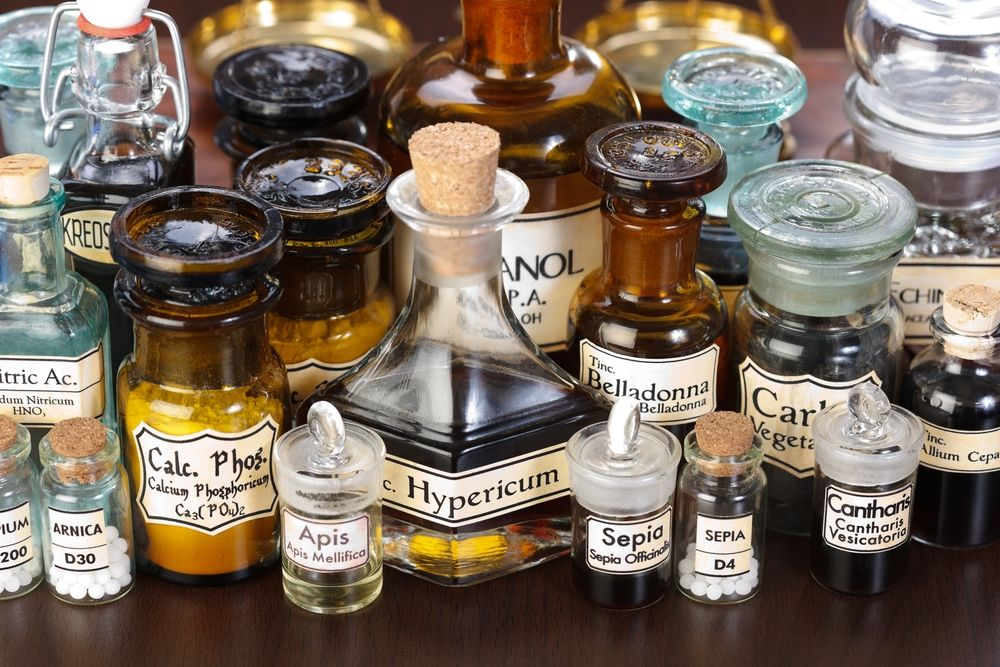
Homeopathy is a type of alternative medicine that has been in existence for over two centuries. It was created by Samuel Hahnemann at the end of the 18th century, and it works on the principle called ‘like cures like’. Learn what homeopathy is and how this healing method works, its controversies and limitations.
What Is Homeopathy?
Homeopathy is a system of medicine that uses highly diluted substances to stimulate the body’s natural healing processes and address various health conditions.
Let’s get the basic facts about homeopathy first. The homeopathic system of medicine uses two main principles. The Law of Similars states that A substance that causes symptoms in a healthy person can be used to treat similar symptoms experienced by a sick person.
The Law of Infinitesimals states that the more diluted a substance becomes, the stronger it gets as a curative agent.
If followed correctly, these laws are thought to initiate the body’s natural healing process.
What Is Allium Cepa for Allergies?
Allium cepa is a homeopathic remedy derived from red onion, used to alleviate allergy symptoms like sneezing, runny nose, and watery eyes.
One widely cited case is using Allium cepa as an antidote for recurring allergies such as hay fever. Let’s analyze this instance with respect to homeopathic tenets.
Allium cepa is commonly known as red onion. In homeopathy, more specifically, onion extracts are mixed with water or alcohol and then shaken vigorously (this process known as sucussion). It acts as a form of remedy.
The majority will have these symptoms when they cut onions like eyes watering stingingly, runny nose, sneezing and scratchiness in the throat
They are almost similar to those associated with hay fever or other respiratory allergies occurring above the diaphragm.
What Is The Homoeopathic Law of Similars?
The homeopathic Law of Similars states that a substance causing symptoms in a healthy person can treat similar symptoms in a sick person when highly diluted.
Homeopathy uses the prepared dilution of onion. This is because it causes symptoms like those of allergies and can be used to treat allergy symptoms. This is a direct result of the homeopathic “like cures like” principle.
Preparing Allium Cepa as a homeopathic medication involves a step-by-step procedure.
They start with an extract from red onions. Afterward, the extract is diluted in large amounts of water or alcohol. This mixture is then subjected to violent shaking (succussion).
This process of dilution and succussion is repeated multiple times.
In some cases, the final product may contain hardly any molecules from the original onion extract as it may be highly diluted. Common potencies include 6C (1:10^12) and 30C (1:10^60).
Normally, small sugar pills or tablets infused with the diluted solution form are used in the case of Allium Cepa remedy. Patients are told to dissolve them under their tongues.
Why Is Homeopathy, Full of Controversy?
Homeopathy is controversial due to its lack of scientific evidence, reliance on highly diluted substances, and debates over its efficacy compared to conventional medicine.
There are many people who will swear that allium cepa works for allergies. Still, homeopathy is a controversial practice in the scientific and medical communities.
The scientific community has laid down two major criticisms against homeopathy.
The idea that a substance becomes more potent as it gets diluted is a contradiction to basic principles of chemistry and physics. In many dilutions, even one molecule of the original substance is statistically unlikely.
There have been some studies suggesting positive effects from use of homeopathic remedies however; it’s not an area where homeopathy has shown consistent evidence to prove its effectiveness beyond placebo effects.
What Are Some Other Homeopathic Remedies?
Other homeopathic remedies include Arnica for bruising, Belladonna for fever, Nux Vomica for digestive issues, and Rhus Toxicodendron for joint pain and stiffness.
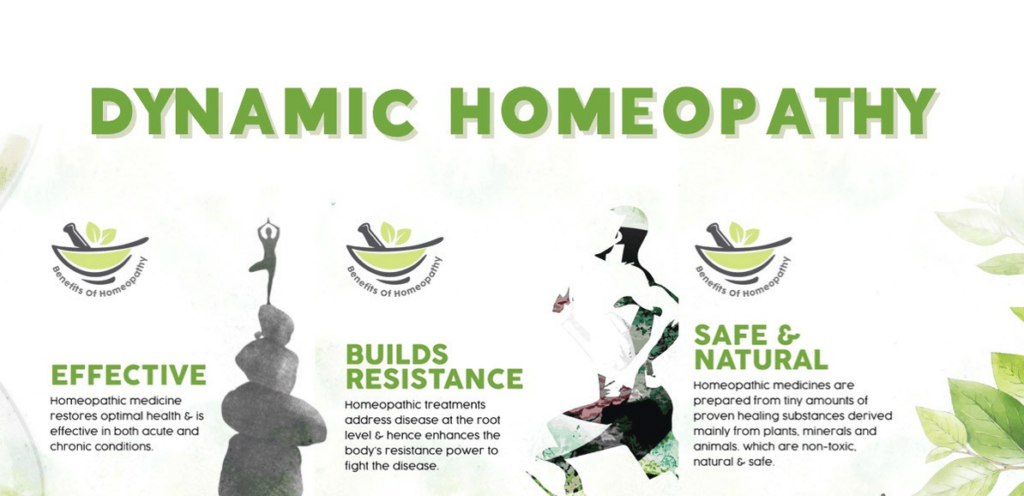
There are so many different kinds of remedies available in the field of homeopathy besides Allium cepa, which is commonly referred to as an example used for allergy treatment. Here are a few examples:
Arnica Montana is used for bruises and muscle soreness Apis Mellifica derived from honeybee venom, is used for swelling and insect bites. Nux Vomica is used for digestive issues as well as hangovers. Pulsatilla is used for menstrual discomfort and mood swings
All these remedies also follow the “like cures like” principle. They go through dilution processes similar to Allium Cepa.
What Is The Role of Homeopathy in Modern Healthcare?
Homeopathy plays a niche role in modern healthcare, offering alternative treatment options for some, but its efficacy is often debated and it is not widely mainstream.
Although controversial, homeopathy remains a popular medical philosophy in many parts of the world. In some countries, it is part and parcel of their National Health System, while for others, it is merely an alternative practice.
When conventional treatments have failed or patients want more naturalistic approaches to medical care, people often turn to homeopathy. Nevertheless, individuals need to be well aware before making any decisions about their health and consult qualified healthcare professionals.

What illnesses does homeopathy treat?
Homeopathy treats a range of illnesses, including allergies, colds, flu, headaches, digestive issues, and chronic conditions, though its effectiveness varies and is often debated.
Homeopathic medicine has the capability of addressing various illnesses from simple colds and flu to chronic ones like allergies, digestive disorders, skin problems, and even mental issues such as depression or anxiety.
It is worth noting that although homeopathy may work for numerous people, it cannot substitute conventional medicine in severe cases or fatal maladies.
What is the best medicine in homeopathy?
There is no single “best” homeopathic medicine; effectiveness varies by individual and condition. Remedies are selected based on specific symptoms and personal health needs.
There are no medicines in homeopaths that could be termed as best among all others. Individualization serves as the core principle behind homeopathic treatment where remedies are chosen according to specific symptoms and general constitution of a patient rather than disease itself.
All these factors are considered carefully by a good practitioner during selection of a remedy with appropriate potency.
Conclusion
The example of Allium cepa for allergies illustrates key principles involved in homeopathic therapy with the help of the use of ultra-high dilutions. Despite its controversial nature though, it still emerges as one of the most preferred systems of alternative medication globally. As with any medical decision, one must approach this with skepticism and seek professional opinion on serious health matters.
References
Homeopathy
Homeopathy, an alternative type of medicine that is more than two centuries old, has it that “similia similibus curantur,” serves as a stimulant to healing.
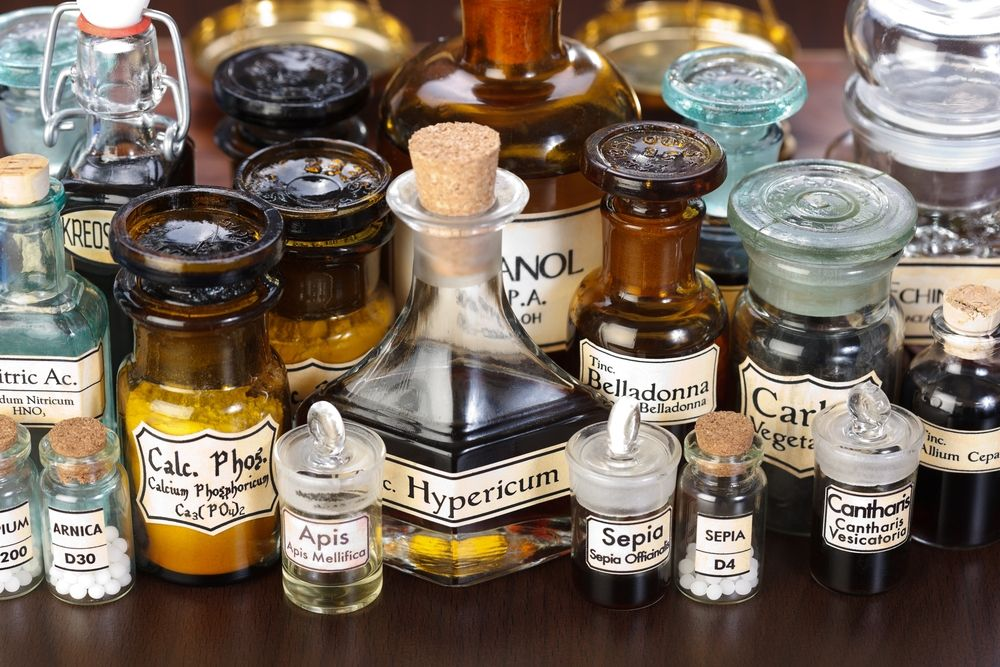
Homeopathy, alternative medicine that is holistic in nature, is based on theories such as ‘like vindicates like’ and dilutions. Many people are becoming more interested in alternative therapies, and as such, the effectiveness of homeopathy has become a matter of concern to many. This article will look at the success rate of homeopathy by considering scientific studies and anecdotal evidence.
What are the success rates of homeopathy in treating chronic illnesses?
Homeopathy claims success in chronic conditions like arthritis and migraines, but scientific evidence is mixed. Some studies report benefits due to the placebo effect. Patient testimonials often highlight improvements, but results vary. Large-scale, rigorous studies are needed.
Success in homeopathy often comes down to individual responses, so it is very difficult to achieve effectiveness. Some patients get tremendous relief from chronic ailments, while in others, no improvement is seen. Practitioners of homeopathy argue that success at treatment is highly individualized and calls for personalized remedies.
This inconsistency in results puts forth the requirement for more comprehensive studies that should ideally have large sample sizes and standardized methodologies in order to validate the claimed efficacy of homeopathy in the management of chronic diseases.
How does homeopathy work in treating acute conditions?
Homeopathy treats acute conditions by stimulating the body’s self-healing. It uses highly diluted substances to trigger a healing response. While some users report quick relief, scientific support is limited. Acute treatments are typically short-term.
These homeopathic treatments of acute conditions are normally plant-, mineral-, and animal-based remedies, radically diluted so that the actual ingredient is barely present in the final product. Practitioners claim that these remedies start the response of the immune system to the illness.
Critics argue that treatments like this are no more effective than a placebo; there are anecdotal reports of success. At the same time, proponents of homeopathy argue that homeopathy would be complementary to conventional medicine in those very areas where a mild, gentle intervention is needed.

What’s the response time for Homeopathy?
Homeopathy’s response time varies by individual and condition, ranging from a few days to weeks. Chronic illness might require longer treatment. Personalized remedies aim to balance the body naturally.
Homeopathy is an alternative medicinal system arguing that its treatments could initiate a cure by boosting the body’s self-defenses. Some proponents argue that acute conditions may see improvement within hours to days while chronic problems might take weeks or months. Yet these inconsistencies often raise doubts about its dependability and consistency.
How effective is homeopathy?
Some patients report significant improvements, while others see minimal change. The success often depends on individualized treatment and practitioner expertise, focusing on holistic healing.
According to some clinical trial meta-analyses, though improvements in some patients were reported, they were not significantly different from those recorded in the control groups. This raises questions about how much homeopathic treatments actually work.
Is there any scientific evidence for homeopathy?
Scientific evidence for homeopathy is limited and controversial. Some studies suggest placebo effects, while others show potential benefits. More rigorous research is needed to validate its efficacy and mechanisms of action.
The scientific community generally approaches homeopathy with a lot of caution. Modern science does not support some basic principles of homeopathy, such as “like cures like” or the use of highly diluted substances.
Critics argue that most dilutions used in developing these remedies might yield content that cannot contain any molecules originating from the original substance, making no therapeutic effect plausible at all.

What are the most common uses of homeopathy?
Homeopathy is used for allergies, stress, migraines, and skin conditions. Users seek it for holistic health benefits. It emphasizes individualized treatments, considering emotional and physical aspects. Scientific support varies.
Hence, the result under this system would be two patients suffering from the same disease being administered different medicines, depending upon the characteristic symptoms and personal case history of the patients.
In the treatment of chronic diseases where allopathy, quite often, may have scant relief to offer, homeopathy is especially popular. Diseases such as irritable bowel syndrome, chronic fatigue, and eczema fall under treatment by homeopathy. Evidence for these usages, however, is erratic, with studies showing no effectiveness beyond the placebo effect.
What are the limitations of homeopathy in medical treatment?
Homeopathy’s limitations include a lack of scientific consensus, potential delays in conventional treatment, and reliance on anecdotal evidence. It may not be effective for serious or life-threatening conditions. Critics highlight placebo effects.
The first and foremost limitation is that there is no robust clinical evidence as to the efficacy of homeopathy against severe diseases such as cancer or heart problems. When treatment for such an illness is solely homeopathic, diagnosis and treatment may be delayed, which might turn out to be worse.
Also, although homeopathy is relatively harmless, the ineffectiveness of its medications can be ineffective against the causal agents of disease, causing possible oversight of medical interventions.
How does homeopathy compare to conventional medicine?
Homeopathy and conventional medicine differ in approach and evidence. Homeopathy focuses on individualized, holistic care with minimal side effects. Conventional medicine relies on scientifically proven treatments. Both have strengths and weaknesses.
Traditional medicine tends to focus on treatments that have been proven in clinical trials and conformed to care standards, with quick and often conclusive interventions. Homeopathy focuses on individualized care, alleging to get to the roots of symptoms rather than the symptoms themselves.
It is this that inclines some patients toward homeopathy because of its natural character and allegedly gentle nature, while others fall back on the certain methodology of conventional medicine for emergency cases or in really life-threatening diseases. The choice between these often depends on patient preference and specific health needs.
Are there any side effects of homeopathic treatments?
Homeopathic treatments are generally considered safe, with minimal side effects due to high dilution levels. However, improper use or delays in seeking medical advice can lead to complications. Some may experience temporary symptom aggravation.
The high dilution levels in homeopathic remedies make them administrable to a wide range of patients, even to those who are sensitive to conventional medications. However, their misuse in self-prescription without seeking proper guidance and overlooking the needed medical intervention may result in complications, especially in serious health conditions. Temporary aggravation in symptoms, called “homeopathic aggravation,” can take place but is generally very mild and short-lasting.
Conclusion
Homeopathy has a high success rate which is gaining popularity as it continues to bring great relief through its natural remedies. It is important nevertheless, to consider both scientific proof and personal experiences. Therefore, it is necessary to seek advice from health practitioners as well as do thorough investigations before making decisions concerning your health.
References
Homeopathy
Homeopathy, an alternative type of medicine that is more than two centuries old, has it that “similia similibus curantur,” serves as a stimulant to healing.

Are you tired of the same old healing methods? Do you ever wonder if there is something more to it than just conventional medicine? Today, many people are recognizing that health is not just a physical matter. People are looking for holistic solutions that consider all aspects of a person’s well-being including their body, mind, and spirit.
What is homeopathy?
Homeopathy is an alternative medicine system based on the principle of “like cures like.” Practitioners use highly diluted substances to stimulate the body’s self-healing processes, aiming to treat symptoms and underlying causes of illnesses naturally and holistically.
Homeopathy was founded in the late eighteenth century by Samuel Hahnemann. Using remedies made of plants, minerals, and animals, homeopathy follows the process that the body has the ability to heal itself when given the necessary stimulus. It focuses on the individuality of the person being treated and low doses. The treatment strives to get the body back in balance and improve its general health by considering the mental, emotional, and physical balance.
How does homeopathy differ from conventional medicine?
Homeopathy differs from conventional medicine by focusing on individualized treatment using diluted remedies, while conventional medicine targets specific diseases with standardized treatments. Homeopathy emphasizes holistic care, aiming to treat the whole person rather than just symptoms, contrasting with conventional approaches.
Conventional medicine works on pharmaceuticals and surgery for different diseases and usually, the treatments have scientific evidence and are clinically tested. On the other hand, homeopathy works with the healing power of the body itself, and the medicines are very individualistic, taking into view each and every symptom and the constitutional. This difference in philosophy, in a nutshell, separates homeopathy from most other kinds of medicines.

What are the criticisms of homeopathy?
Critics argue that homeopathy lacks scientific evidence and relies on placebo effects. They claim that its remedies are too diluted to be effective, questioning its legitimacy as a medical treatment due to limited empirical support.
Skeptics typically claim very low efficacy of homeopathic remedies because the clinical trials have been too few and in general, no scientific validation is found for the same. Homeopathic treatments are highly diluted, leading to the very minute to negligible availability of the actual drug and the opponents of the theory claim the effect to be nothing other than placebos.
Nevertheless, various claims of positive results and recommendations of this concept and its ideology can still be observed from the homes and mouths of supporters and practitioners of the subject matter.
Are there any benefits to homeopathy?
The benefits of homeopathy are personalized care, minimal side effects, and holistic treatment. They argue that it can effectively manage chronic conditions, enhance overall well-being, and complement conventional medicine, offering a gentler approach to healthcare.
Most people like the fact that homeopathy is a process for treatment that deals with each patient based on his or her unique symptoms and way of life. The mild nature of homeopathic remedies supposedly tones down the action of unwanted side effects, hence becoming very popular with those who show sensitivities to ordinary medications.
Even though there is mixed scientific evidence for its efficacy, some studies, as well as a number of anecdotal reports, do prove that homeopathy does benefit certain patients, particularly where issues related to chronic conditions and those caused due to stress are concerned.
Do Homeopathy Practitioners Attend Medical School?
Homeopathy practitioners typically attend specialized homeopathy schools rather than conventional medical schools. These programs focus on homeopathic principles, remedies, and holistic health practices, offering training distinct from traditional medical education.
Study courses on homeopathy are varied across institutions in different countries. The coursework is taken in anatomy, physiology, and philosophy of homeopathy in most cases. The programs range from diploma courses, and advanced degrees to clinical practice or internship in some cases. In countries that highly regulate homeopathy, practitioners are supposed to obtain certification examinations in order to legally practice. In terms of holistic health, homeopathy schools provide focused training and the practitioners do not receive biomedical education like conventional doctors. They are specialized in natural remedies and individualized care.
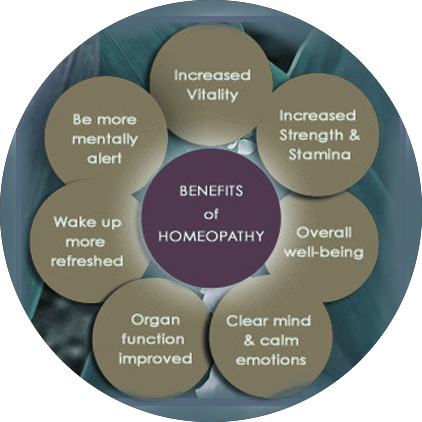
Is homeopathy scientifically proven?
Homeopathy is not widely accepted as scientifically proven. Critics argue that the lack of empirical evidence and reliance on anecdotal reports challenge its legitimacy as a scientific treatment, with many studies showing inconsistent or inconclusive results.
While some studies show positive outcomes, the scientific community largely remains skeptical about homeopathy because of inherent methodological flaws, small sample sizes, and inability to reproduce results. Most of the principles put forth by homeopathy violate well-established scientific principles, especially in regard to remedy dilution and potentiation. For all these reasons, most mainstream organizations that deal with medicine do not acknowledge homeopathy as a legitimate scientific treatment.
Can homeopathy be used alongside conventional treatments?
Homeopathy can complement conventional treatments, offering integrative care that supports overall well-being. Many practitioners use it as a supportive therapy, potentially enhancing treatment outcomes and providing a more holistic approach to healthcare.
Integrating homeopathy with conventional medicine can provide a complete treatment plan managing symptoms as well as the causes. It will not necessarily replace conventional care but will help one recover more quickly, cope with stress better, and healthfully. This type of integrated approach is invaluable in the case of chronic conditions where lifestyle modifications, coupled with holistic care, bring about appreciable improvement in the quality of life.
What conditions are commonly treated with homeopathy?
Homeopathy is often used for chronic conditions like allergies, asthma, migraines, and stress-related disorders. Practitioners also treat skin conditions, digestive issues, and emotional health concerns, emphasizing individualized care and holistic treatment.
It is also very suitable for a wide array of conditions, more so those that present complex symptoms or have an underlying emotional cause. Although variable in its scientific support, some patients reportedly turn to such treatments to find relief from chronic pain, fatigue, and anxiety. Homeopathic remedies are also used to take care of seasonal allergies and skin conditions like eczema, which emphasize more natural and individually tailored treatments toward re-establishing balance and health.
Wrapping Up!
Are you ready to try a more holistic way towards your wellness? Homeopathic medicine can be viewed as unique because it treats people holistically, i.e., takes into account all their physical, mental, and emotional states before prescribing any remedy. If therefore this field sounds interesting enough or even if becoming a doctor represents a career path worth pursuing then let me assure you that finding true health through holistic living shall never be regrettable.
Homeopathy
Homeopathy, an alternative type of medicine that is more than two centuries old, has it that “similia similibus curantur,” serves as a stimulant to healing.

Homeopathy, an alternative type of medicine that is more than two centuries old, has it that “similia similibus curantur,” serves as a stimulant to healing. Despite allegations of inefficiency homeopathic drugs are still in use today. This post is going to delve into its history, principles and practical applications so that you can make an informed choice about your health.
Understanding Homeopathy: An In-Depth Overview
Homeopathy is considered a complete system of alternative medicine that was introduced and popularized in the world of medicine more than two centuries ago by Samuel Hahnemann, a German physician. The two main principles are “like cures like” and “law of the minimum dose.”
The first principle states that a treatment that is known to cause specific symptoms in a healthy person can be used for treating a sick person suffering from the same symptoms. The second principle states that the more a substance is diluted, the less the quantity, and the higher the healing power of that substance.
These remedies are obtained from all-natural sources such as plants, minerals, and animals that are successively diluted and “succussed” for therapeutic enhancement. Homeopathy on the other hand is more of a system, in which the person is treated, and not the disease, hence physical, emotional, and mental signs are assessed.
Such physicians are focused on the potentiation of a person’s self-renewal, so they use individually selected remedy types corresponding to the constitution of each specific patient.
People in all parts of the world, especially in Europe and Asia, practice homeopathy which is well known for its debate. The bare critics always find it very hard to explain the fundamental ideas of homeopathy to a layperson without the use of some strategy to cut its explanation for promotion to the rationalists while some endorsers speak of contention medicine efficiency and the thorough ways of healing that come with this ancient medical practice.
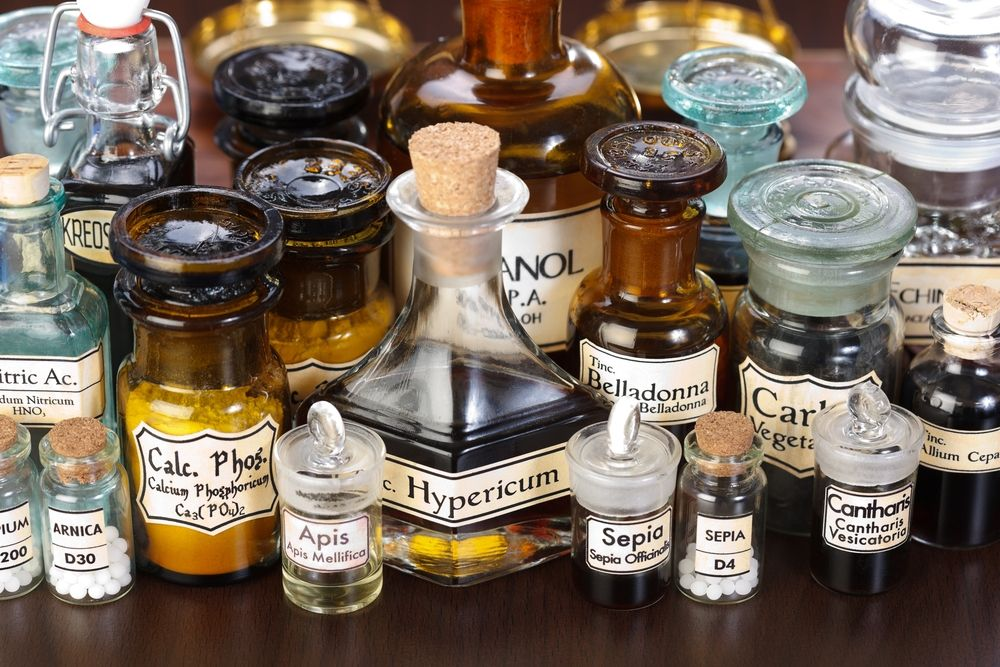
The Historical Roots of Homeopathy
Homeopathy is a system of medicine whose history goes back to the later part of the 18th century when Samuel Hahnemann first developed the concept. He was a qualified physician, but he did not quite fancy the treatments of the time which included bloodletting and purging. Such was his experience that even cinchona bark common for its use in treating malaria could cause malaria in healthy people who were not sick, and it was this that made him come up with what he called inverts (like cures like).
Hahnemann, in 1796, made homeopathy known to the world through a book Organon of the Rational Healing Art, where he published his ideas. The teachings went across the continent within a very short while, reaching areas where the practitioners of orthodox medicine were disappointing the people. It did well in countries like the United Kingdom, Germany, and India, and gradually gained the status of an alternate healthcare system. In the 19th century, it had already crossed the ocean going to North America, where homeopathic colleges and health centers developed.
As much as conventional medicine has improved, there are millions of people across the globe who still utilize homeopathic practices. It contains a great historical context and contemporary viability which places it a foremost system of alternative medicine in the current era.
Fundamental Concepts and Techniques of Homeopathy
There are a number of key principles, practices, and ideas of the practice of Homeopathy that members want to explore further which is probably not the case in the case of normal medicine:
- Individualization: The homeopathic principle of “like cures like” or “let likes be treated by likes” states that poisons can also cure the effects they cause.
- Law of Minimum Dose: Potent remedies are given with the intention that less would be better.
- Individualization: Everyone is treated on the basis of their whole being and not primarily on their manifestation of disease.
- Vital Force: This includes the concept of inducing a person’s life force to generate healing from within.
Homeopathic Treatment uses what are referred to as techniques of potentization that include serial dilutions of substances and succussion which homeopaths believe encodes the ‘energetic imprint’ of an original substance onto water or alcohol solutions. Potent remedies are offered based on the type of ailments that are being treated. Evaluation of the physical, mental, and emotional aspects is conducted in a bid to formulate effective and suitable treatment approaches for each individual.

Exploring the Healing Benefits of Homeopathy
For a long time, homeopathy has been appreciated mainly due to the following reasons:
- Easy Treatment: Since homeopathic treatments are not surgical related, there are no adverse effects and this makes them useful for all ages including babies and old people.
- Chronic Conditions: Oftentimes, it is used for the management of chronic diseases such as allergies, asthma, arthritis, and digestive diseases which can remain untreated through standard treatments.
- Mental & Psychology: Homeopathy is safe enough for the treatment of mental health issues, such as difficulty concentrating, burnout, and depression, which can impact the patient’s emotional health.
- Prevention and Strengthening Immunity: Some homeopaths go as far as saying that this alternative medicine can help boost one’s immune system and stop diseases from occurring.
Although homeopathy is not meant to replace the curative system, it can work along with other treatments to help the patient achieve a healthier status.
Who Can Benefit from Homeopathy? A Guide for Different Needs
A wide array of people and conditions can utilize homeopathy such as:
- Infants and Children: Homeopathy is appropriate for the non drug treatment of the most common complaints in infants: colic, difficulty with teething, ear infections.
- Pregnant Women: A remedy to help relieve morning sickness is completely safe, as are remedies for anxiety and other hormonal changes during pregnancy.
- Elderly Patients: Homeopathy is popular with senior citizens struggling with chronic pain, arthritis, and digestion problems.
- Mental Health Support: Homeopathy offers individualized effective treatment of anxiety, depression and other stress-related disorders.
- Chronic Illnesses: Patients with chronic diseases like asthma, allergies or autoimmune diseases usually resort to homeopathy as an adjunct.
Homeopathy being safe and patient-specific, allows treatment of patients with various health care requirements, while the holistic aspect ensures that it may be used as an adjunct to conventional therapies.
Scientific Insights: What Does the Research Say About Homeopathy?
Debates within scientific orthodoxy continue as to the scientific assessment of homeopathic medicine. Some of the clinical studies conducted had positive conclusions for the treatment of allergies, migraines, and rheumatoid arthritis. On the other hand, a number of researchers, including Griffith, claim that homeopathy is not effective since it uses remedies that are so diluted that they contain no active ingredient, thus positive results, if any, could only come from a placebo.
Some mainstream critics tend to point out the absence of sufficient quantity and complexity of clinical tests and although advocates declare, most of the such tests done are unnecessary since at times such ordinary testing is not appropriate for assessing comprehensive therapies. Such work, including positive medical outcomes associated with homeopathy, particularly management of chronic disease, continues in Europe and India.
The controversy about possible benefits of Homeopathy still leave many doctors and scientists divided. Further studies are still required to evaluate how it works and to assess whether or not it works in the clinic.

Debunking Common Myths and Misunderstandings about Homeopathy
There are quite a few misconceptions about homeopathy, which tend to obscure the understanding of the public. Let’s look at some of the common ones:
Myth: Homeopathy is herbalism.
Fact: Homeopathy also uses natural ingredients however, it is a significantly different practice from herbalism as it also incorporates the processes of dilution and potentization.
Myth: Homeopathic medicines are water only.
Fact: Potentization is a procedure in the making of homeopathic medicines where the energy of the original substance is said to be imparted to the used solution.
Myth: Treatment from homeopathy takes a long time before showing effects.
Fact: Homeopathy does have immediate benefits for acute conditions, on the other hand, if the problem is chronic it may take longer to see the effects.
Considering these stereotypes will enable more people to appreciate the potential and shortcomings of homeopathy as a form of complementary therapy.
How to Find a Qualified Homeopathy Professional: Ways to Find the Right Practitioner
Being treated by a qualified homeopathy practitioner is an important step towards ensuring safety and effectiveness. Good pieces of advice include:
- Licensing and Certification: Certification from known boards or associations in the field of homeopathy is preferred.
- Length of Experience and Area of Specialization: It would be preferable to seek one who is experienced in the condition for which homeopathic treatment is sought.
- Consultation Style: An efficient homeopath would invest time in studying the physical, emotional, and mental health of a person.
- Referrals and Reviews: Ask for referrals and read reviews of other patients as well.
In addition, the practitioner should be willing to integrate homeopathy with your conventional or other alternative therapies that may be prescribed for you.
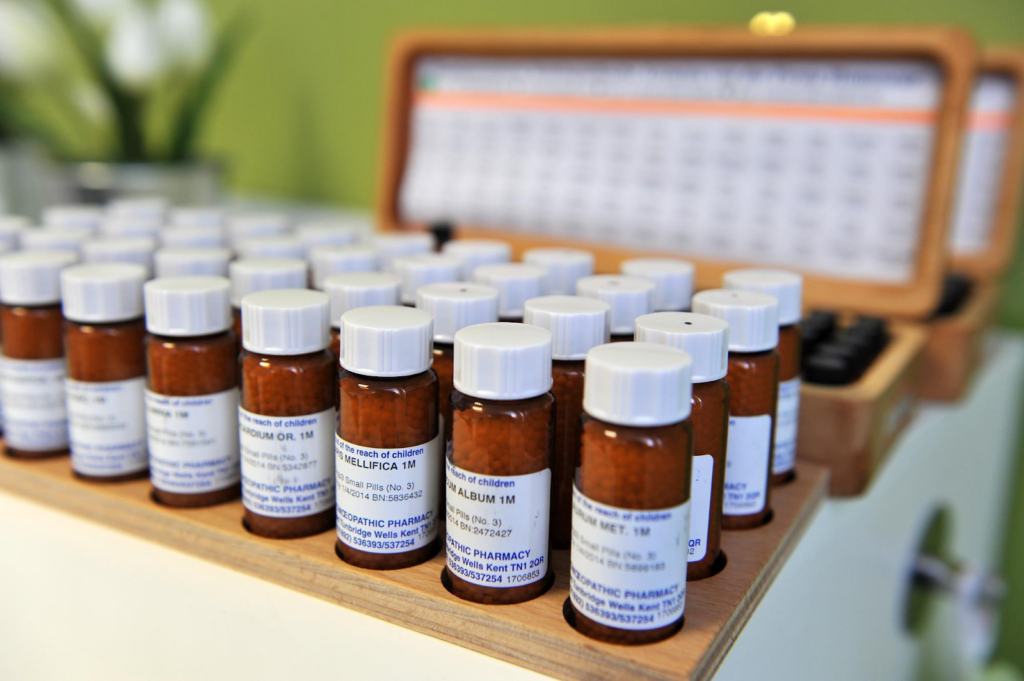
Integrating Homeopathy with Conventional Therapies
It is very common for homeopathic treatments to be used in combination with other types of medicine and therapies in general for the achievement of better health. These practices provide examples of integration:
- With Conventional Medicine: Homeopathy can help relieve the side effects of conventional medicine, for example, in chemotherapy, or improve chronic disease management.
- With Complementary Therapies: The practice of homeopathy can be practiced with other modalities such as acupuncture, chiropractic therapy, or naturopathy.
- Mental Health Support: Homeopathic treatments can be used together with psychotherapy or any form of counseling where healing of emotional disorders meaning to support wellness is required.
In the case of planned integration of homeopathy, it is necessary to be involved in the treatment team of care providers for the adequateness and safety issues.
Understanding the Risks: Potential Side Effects and Precautions of Homeopathy
Homeopathy practice is quite safe (and undesired events occurrence is essentially very limited) methods of treatment, nevertheless, some measures have to be taken:
- Reoccurrence of Symptoms: In some instances, there may be exacerbation of certain symptoms before a beneficial change is noticed healing crisis
- Drug Interactions: This is uncommon as homeopathy medicines are unlikely to interfere with conventional medicines. However, always keep your clinician informed of your homeopathic medications.
- Allergic Reactions: Homeopathic medicines are taken in an extremely diluted form which technically prevents allergic reaction but there are cases since some patients can be allergic to less diluted substances e.g. plants and minerals.
To help in these cases, however, one can limit these risks by working with a qualified homeopath and talking about their current health status and medications, if any, that they might consider homeopathy safely.
The Challenges and Controversies Surrounding Homeopathy
It presents a highly controversial topic within the medical sphere: homeopathy. Some of the most persistent criticisms are related to:
- Insufficient Scientific Evidence: Opponents point out that homeopathy does not have sufficient clinical trials and evidence and that their treatment contains no active ingredient.
- Placebo Effect: Some research explores the argument that the benefits of homeopathy are the result of a placebo rather than the remedies themselves.
- Regulatory Issues: In some nations, the practice is almost completely unregulated, thus heightening concern with the integrity and effectiveness of homeopathic preparations.
Supporters of homeopathy disagree with the idea that it is ineffective, explaining that it works on the whole body unit and gets rid of the disease, not just the symptoms of it. The struggle between supporters and opponents keeps on, revealing that the topic is needful of more studies.
Understanding the Financial Investment in Homeopathy
The rates for homeopathic treatment differ according to the level of the practitioner, the city and geographical location as well as the duration of a given treatment. To be precise, going for an initial consultation will cost between one hundred to two hundred and fifty dollars while follow up sessions normally go for fifty to a hundred and fifty dollars.
The medications used in this therapy are not expensive ranging from five to twenty dollars. Then again, the number of consultations and the requirement for treatment over long periods may escalate the costs. In most parts of the world, the insurance coverage for homeopathy is scant, hence the reason why it is advisable to check with your provider to know what’s right and not covered.
Overall, all other factors aside, homeopathy, lets emphasize on the importance of financial commitment, investment analysis helps to know how homeopathy is effective in counteracting health problems in a more reasonable and extended term.

How to Become a Practitioner of Homeopathy?
If you strongly believe in the approach of complementing conventional medicine with alternative modalities and want to go a step further and do homeopathy practice, here’s what you’ll have to do:
- Education: Go to an approved institution that teaches professional homeopathy covering aspects of homeopathy, anatomy, and pathology.
- Certification: Chart a course in order to get certified from a relevant homeopathic board or association and gain some respect.
- Clinical Training: Theoretical training alone does not develop skills; clinical training is instrumental in practice.
- Licensing: It is also noteworthy that licensing requirements differ according to regions, therefore, it is best to consult local laws and organization regulations.
Over time, practitioners may also pursue further skills enhancement through continuous education and- or advanced training programs and broader their practice areas, too.
Creating a Community: Connecting with Others Who Practice Homeopathy
Being a part of a community of like-minded individuals has its advantages whether you are a seasoned practitioner or a newcomer to the field of homeopathy. Here’s how to connect:
- Become a Member of Professional Associations: Membership in homeopathic associations is an opportunity to get various materials on homeopathy, go to symposiums, and communicate with other members.
- Join Workshops and Seminars: Such events give you an opportunity to listen to the masters and work with their colleagues.
- Communal Systems on the Internet: Most of the homeopaths take part in forums, social media, webinars, and such other activities to create awareness and to learn.
Developing a community does not only provide professional rewards but also a journey towards self-development as a homeopathyє.
Conclusion
Homeopathy is a form of therapy that is different from others in the sense that it is more of an individual-oriented, non-invasive and a body-oriented healing method. Treatment or rehabilitation are the only two possibilities for those wishing to become homeopathy practitioners. In the former, homeopathy can be incorporated into traditional and alternative therapeutic approaches which can help improve health and wellbeing. It is hopefully enough to introduce you to its principles, history and benefits so that you can bring it into your life and join other like-minded holistic health practitioners.
